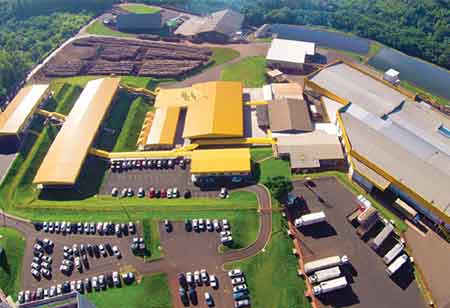

Thank you for Subscribing to Agri Business Review Weekly Brief

There is a lot of talk about changes, technology, and solutions that make the daily lives of companies and even people better and more productive. And this is true!
When we look at the world of the supply chain, for example, it is perhaps one of the areas that have evolved the most in several ways, both in technology, processes, confirmation of its importance, and consideration of it as strategic. Various positions have emerged in companies for managers, directors and even CCOs or chief operations officers. Also, technology, how it has evolved, how we have tools, complex systems, everything to provide better functioning, adherence, perception and, finally, results in the supply area.
Taking advantage of the results mentioned, despite everything that has already been done, it is being done and will still be done; considering the effect and need for changes in supply, perhaps a topic that needs to be explored a little more, it is the importance of leadership in this leadership area.
It is true that leadership is important in all areas and a determining factor in success. This is explained by how much the subject is talked about, how many authors we have who delve into the subject, and I would say that currently, with technology in favor of communication, information, methods, strategies, concepts, everything that we imagine about leadership. In addition to undergraduate, postgraduate, master's, doctoral, and post-doctoral degrees, all of this with very serious people and institutions that seek to train professionals with an eye on the importance of leadership.
And I come to realize, more and more, that in the supply chain, it is increasingly necessary to invest in leadership at all levels.
I had the opportunity throughout my career to have excellent leaders, both at home with my parents, who taught us about respect, protagonism and humility, and in my first job as a hot dog seller, where the owner taught in a joking way about the importance of listening, understanding the customer, and relating well with my co-worker, where we would help each other with activities in which one was less skilled than the other. Even in the various other corporations I worked at, I always found exemplary leaders, some not so much, but I confess that I learned from all of them about what to do, how to do it and often what not to do as well.
My perception is that this coaching or mentoring that I had was fundamental in forging what I became, and am still being forged, in understanding how important leadership is and how it makes a difference in the pursuit of results. .
I often say that when a leader tries to ‘embrace’ his challenges with his own arms, his range of action is limited. However, when the same leader understands that to embrace his challenges, he has the arms of each leader and each member of his time, he exponentially expands his ability to take on challenges and deliver results. Understanding this and understanding that it is through leadership that all this will happen is an important success factor.
And I come to realize, more and more, that in the supply chain, it is increasingly necessary to invest in leadership at all levels. The larger the structure and size of the company, this becomes even more challenging as the strategic message, the purpose and the concept of understanding to serve needs to be disseminated throughout the company, and the leader plays a fundamental role in making this happen.
It starts with the council, which needs to be very clear about this, that is, understand that leadership has a fundamental role and, from there, unfold it into different actions, concepts, existing methodologies, and training of the entire leadership body. In this way, a virtuous circle is formed with leadership engaged and understanding their role. The message will reach all personnel, and thus, together with the entire technological framework, processes and diverse resources, people understand what they need to do, how they need to do doing, is most important of all, why they are doing it, and in this way it will allow the supply chain area to have a true strategic protagonist role for the company.

However, if you would like to share the information in this article, you may use the link below:
https://www.agribusinessreviewapac.com/cxoinsight/marcus-augusto-silva-nwid-1846.html